One of the best things about college is that you get to choose classes and topics that interest you, even if they are not part of your declared major! Did you know that UMF offers specialized certification programs that allow students to take a set of classes designed to target a specific field, interest, or topic? The certification programs are not majors, and they are not minors- they are simply a set of courses put together and designed to prepare students going into various fields by giving them knowledge and skills outside of the courses that align with their major. UMF offers Addiction Rehabilitation, Alpine Operations, and English Language Learners (ELL) certifications.
These certification programs are offered to all majors, even with no prior background. Brittany Jerome is a junior at UMF majoring in Early Childhood Special Education while also enrolled in the Addiction Rehabilitation certification program. She has been able to make strong connections between the two fields, as many of her peers have as well. “I never took a rehab class before enrolling in this certification, and I did not feel as though I was behind my classmates,” said Brittany. “These classes include students from a wide range of majors, as many of the classes contain content that is applicable to a variety of majors. The professors understand that not everyone in these classes have the same prior knowledge, so they are really good about including information that non-rehab majors might not know. I have taken classes with students majoring in rehab, education, health, psychology, ORBA, and many more!”
When asked why she has interest in the addiction field, Brittany touched upon the rapid growth of addiction across the nation. “Addiction is spreading, very quickly. Today, almost everyone you meet has been affected by addiction in some way. While working with young children and their families I will come across families where parents, siblings, and other family members may be struggling with addiction, and it affects the whole family. The applied knowledge of addiction and how it can affect families will give me a better understanding and insight into what the family as a whole struggles with, so that I can better help the family meet their needs.”
This program includes classes about substance abuse prevention and addiction, families in rehabilitation, counseling and the helping relationship, child and family psychology, and more! Some of them are health classes, rehabilitation classes, and psychology classes. For a complete list of the courses included in the Addiction Rehabilitation certification, click here.
The classes that are included in this certification have been selected and designed to give students the knowledge and competencies needed in order to take the exam to become a Certified Alcohol and Drug Counselor (CADC) in the state of Maine. More information about the CADC requirements is available here.
This certification program can expose students to various career paths that they had not thought of before that allow them to apply the knowledge they learn in these classes with that of the classes in their major. This was Brittany’s experience, as she was not exactly sure what she wanted to do until recently. “I always knew I wanted to work with babies and young children born with various physical, cognitive, and functional impairments- but I did not want to be a teacher,” Brittany said. “I personally have an interest in working with infants and children born with various mental health needs as well as with parents struggling with their own mental health. I can help parents understand their child’s needs and how to cope with their own struggles as they transition into parenthood. As addiction is a growing epidemic, I will most likely be working with families that struggle with addiction and co-occurring disorders, and even babies born with addiction. This certification program allows me to apply my early childhood special education knowledge with my addiction counseling knowledge in order to make me a more appealing and qualified candidate.”
Are you interested in the topic of addiction counseling, but do not think it will apply to your career goals? Think again! The courses in this certification program are applicable to anyone who wants to work with the public, especially in the human services field. Even if you do not have interest in being an addiction counselor, you still learn a lot about addiction in general, families, co-occurring disorders, the helping relationship- so much more. “Since addiction is such a growing issue, it is almost inevitable that you will end up working with someone who has been affected by addiction,” said Brittany. “Addiction does not discriminate, so I think anyone can find a way to apply it to their current field of interest.”
The certification programs offered at UMF are designed to enhance the knowledge, skills, and competencies of pre-professionals in various areas and disciplines before entering the field. The additional education that students in these programs receive make them a more qualified and appealing candidate, and may be the deciding factor for employers when comparing UMF graduates with other applicants. For more information about the various certification programs offered at UMF, visit the Certificates website.
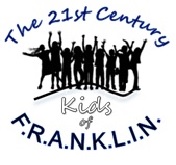

 and consecutive academic years in certain elementary and secondary schools and educational service agencies that serve low-income families, and meet other qualifications, you may be eligible for forgiveness of up to a combined total of $17,500 on your
and consecutive academic years in certain elementary and secondary schools and educational service agencies that serve low-income families, and meet other qualifications, you may be eligible for forgiveness of up to a combined total of $17,500 on your  UMF Scholarships: UMF offers over one hundred academic scholarships for students, and many of them are dedicated to students in the education field. Many scholarships have very few requirements to be eligible, and they are designed to help all students that are deserving. Below is list of just some of the scholarships offered to education majors at UMF. For a complete list of UMF scholarships and recipient requirements, visit the
UMF Scholarships: UMF offers over one hundred academic scholarships for students, and many of them are dedicated to students in the education field. Many scholarships have very few requirements to be eligible, and they are designed to help all students that are deserving. Below is list of just some of the scholarships offered to education majors at UMF. For a complete list of UMF scholarships and recipient requirements, visit the 
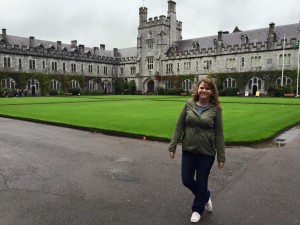
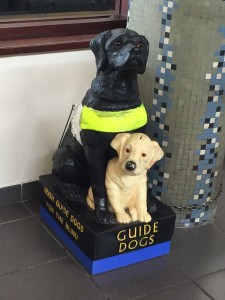 e Deaf, both Americans and Irish went to the same country to learn it, which was France. I found that really neat! That being said, there are a few differences I’ve also found. First, there seems to be a lot more non profit organizations supporting people with disabilities in Ireland. For example, one of my first days going into the city, there were some people asking for donations for
e Deaf, both Americans and Irish went to the same country to learn it, which was France. I found that really neat! That being said, there are a few differences I’ve also found. First, there seems to be a lot more non profit organizations supporting people with disabilities in Ireland. For example, one of my first days going into the city, there were some people asking for donations for 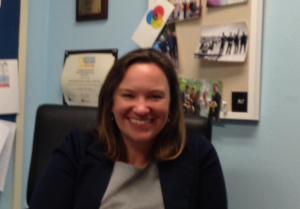 On Wednesday October 12th, Johanna Prince, Director of
On Wednesday October 12th, Johanna Prince, Director of  After a tour of the building, Laurie was able to share her energy and excitement for supporting staff and her passion for bringing engaging, relevant, hands-on learning to students. Laurie shared that her capstone research on the value of mentoring has helped her feel prepared for supporting the teachers she works with and aligning that support to district goals.
After a tour of the building, Laurie was able to share her energy and excitement for supporting staff and her passion for bringing engaging, relevant, hands-on learning to students. Laurie shared that her capstone research on the value of mentoring has helped her feel prepared for supporting the teachers she works with and aligning that support to district goals.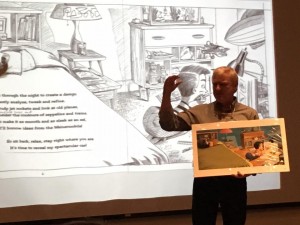 is himself. He went through the planning process of the book, changes his editor wanted to make, and how he moved forward with those changes.
is himself. He went through the planning process of the book, changes his editor wanted to make, and how he moved forward with those changes.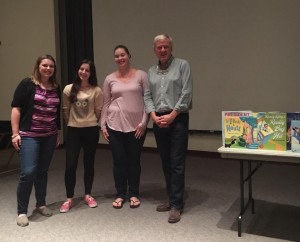
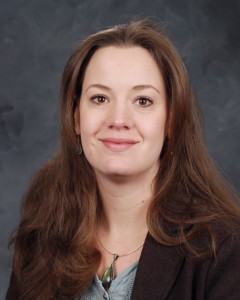 Dr. Leigh Ann Fish is coming to UMF from Troy, Ohio where she worked in public education as an elementary teacher and coordinator of gifted and talented education.
Dr. Leigh Ann Fish is coming to UMF from Troy, Ohio where she worked in public education as an elementary teacher and coordinator of gifted and talented education.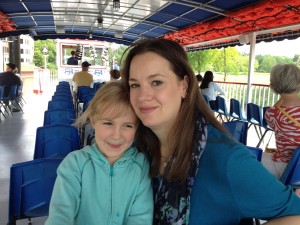 her husband and two young daughters hiking/kayaking, exploring historical sites, and trying her hand at modern-day “homesteading” on their 18th century farm.
her husband and two young daughters hiking/kayaking, exploring historical sites, and trying her hand at modern-day “homesteading” on their 18th century farm.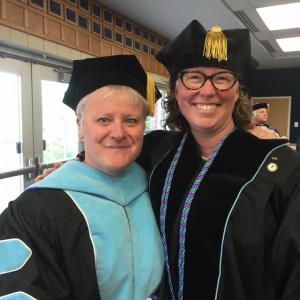
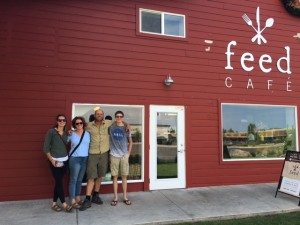
 ly-to-farm summer camps where entire families learned about the origins of their food and food preparation. I also have two children who are now 18 and 20 years old. When they were younger we spent hours (and hours) every day reading.
ly-to-farm summer camps where entire families learned about the origins of their food and food preparation. I also have two children who are now 18 and 20 years old. When they were younger we spent hours (and hours) every day reading.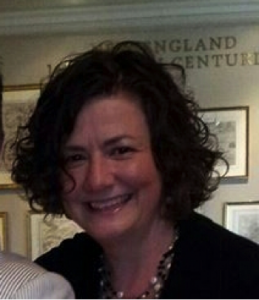 Julia Jeremias is the new Early Childhood Education Off-Campus Bachelor’s Degree Program Advisor and Coordinator. Julia comes to UMF from southern Maine where she is adjunct faculty in the early childhood department at Southern Maine Community College.
Julia Jeremias is the new Early Childhood Education Off-Campus Bachelor’s Degree Program Advisor and Coordinator. Julia comes to UMF from southern Maine where she is adjunct faculty in the early childhood department at Southern Maine Community College. After graduating from Mount Holyoke College and Lesley University, Julia started her life in education as a toddler teacher and continued in various rolls from teacher to public school administrator, until her family was transferred to Maine.
After graduating from Mount Holyoke College and Lesley University, Julia started her life in education as a toddler teacher and continued in various rolls from teacher to public school administrator, until her family was transferred to Maine.